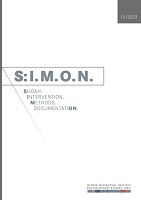Jewish Autonomy in Interwar Estonia and the Life Trajectories of Its Leaders
Jewish Autonomy in Interwar Estonia and the Life Trajectories of Its Leaders
Author(s): Timo AavaSubject(s): Cultural history, Political history, Social history, History of Judaism, Sociology of Culture, Interwar Period (1920 - 1939), Sociology of Politics, Politics and Identity
Published by: Wiener Wiesenthal Institut für Holocaust-Studien
Keywords: Jews of Estonia; non-territorial autonomy; prosopography; interwar era; democracy; authoritarianism;
Summary/Abstract: This article tries to diversify the understanding of the Jewish experience in interwar Europe by analysing the work of Jewish Cultural Self-Government in interwar Estonia. Estonia’s Jews were granted self-government in 1926, and the institution worked until the summer of 1940 when the Soviet Union occupied Estonia. The institution created a public law forum for the Estonian Jewish community where they could independently manage cultural and edu-cational affairs. The authoritarian turn in spring 1934 meant increasing control over minor-ity autonomies, but the institution survived until summer 1940 without any significant re-strictions. Finally, by focussing on some members of the Jewish Cultural Council, the article discusses the possibility of using prosopographic methods to study the history of Jews of Estonia.
Journal: S:I.M.O.N. Shoah: Intervention. Methods. Documentation.
- Issue Year: 10/2023
- Issue No: 1
- Page Range: 37-56
- Page Count: 20
- Language: English

